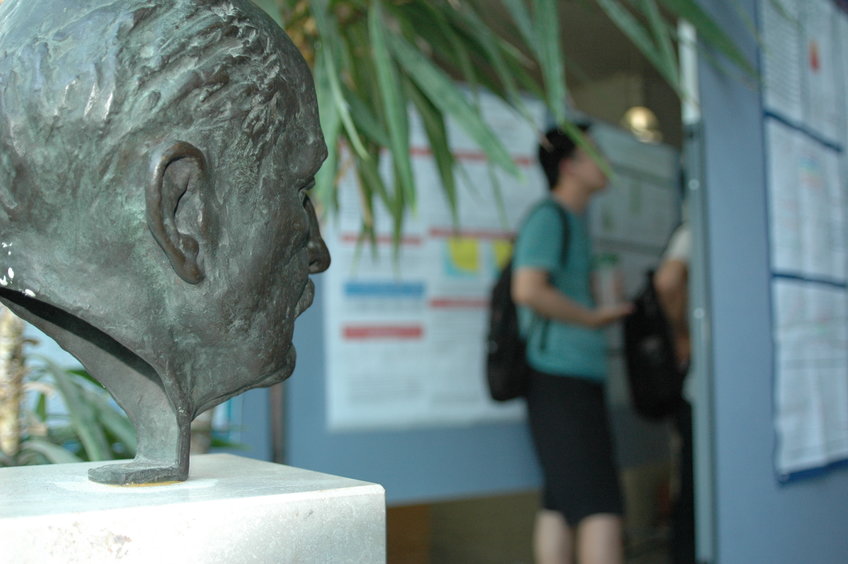
Educating for the science of tomorrow
Comprehensive training in quantum materials
The overarching goal of the Max Planck Graduate Center for Quantum Materials is to provide its students a comprehensive training in the field of quantum materials. As a key new feature, the Center will introduce a set of high-level "Frontiers of Research" courses closely aligned with research at the Max Planck Institutes. Examples of "Frontiers of Research" in quantum materials are superconductivity, synthesis of quantum materials, quantum heterostructures, spin orbitronics, neuromorphic computing, or dynamical control. These courses will typically be co-taught by several Principal Investigators to small groups of students, so that they can be more interactive than regular coursework.
In order to offset the geographical separation of the participating institutions, students from different locations will gather for one week at a central location at the beginning of each course. This will allow them to meet and closely interact with the PI teaching the course and also with fellow students from other institutes. After this initial block course, students can benefit from a dedicated network of “immersive” video studios which will be established at all institutes involved in the Graduate Center. The studios will use large screens and state-of-the-art sound technology to simulate personal meetings in a life-like manner.
The "Frontiers in Research" series and other courses newly established through the Center will be complemented by a large number of courses which are offered at the individual institutes. Each of the participating MPIs successfully runs an International Max Planck Research School (IMPRS). These programs offer a variety of graduate courses which also will be available to students of the Graduate Center.
Lectures and courses will be complemented by academic and non-academic skills training which will cover topics like presentation skills, scientific writing, and other soft skills.
Since 2020, we are offering joint PhD projects with Oxford University (see list on the right). Students working on these projects will share their time between Oxford and one of the participating Max Planck Institutes, and will obtain their PhD degree from Oxford University.